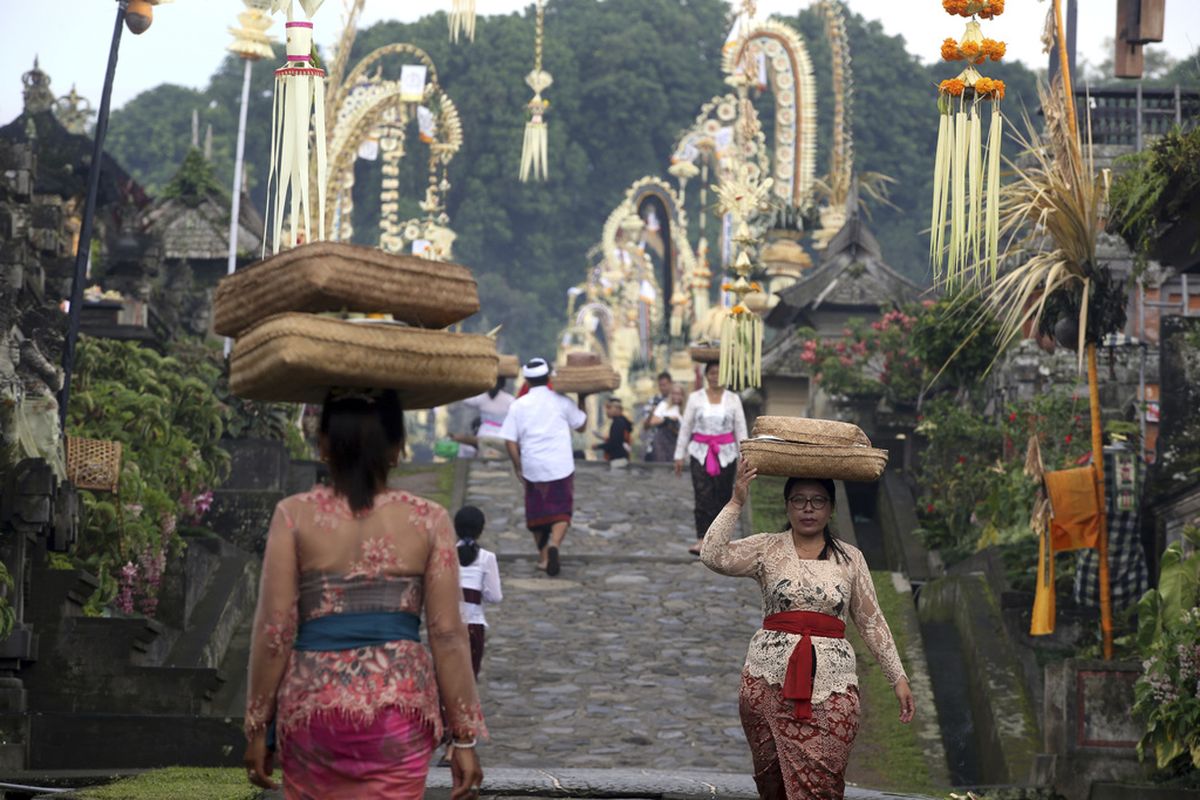Penampahan Day, one day before Galungan, is an important part of the Balinese Hindu calendar, specifically falling on Anggara Wage Dunggulan.
This day marks the spiritual and ceremonial preparations for Galungan, celebrated with devotion, family gatherings, and symbolic rituals.
One of the central traditions of Penampahan is the slaughtering of pigs, which are then prepared into traditional dishes such as lawar and sate lilit. The choice of pigs holds deep symbolic meaning.
In Balinese Hindu belief—based on the Lontar Sundarigama, a sacred text guiding ritual practices—the pig represents negative traits such as greed, laziness, and impurity. Sacrificing the animal symbolizes the effort to conquer Bhuta Amangkurat, a spiritual force embodying egoism and material desire.
The meat is then processed through a ritual called “mebat”, where extended families gather to cook together. Lawar, a blend of finely chopped meat with young vegetables or fruits like tender coconut (klungah), young jackfruit, green bananas, and long beans, is a signature dish.
Other common offerings include sate lilit, made from minced chicken, duck, or fish mixed with spices and wrapped around bamboo sticks.
Beyond culinary preparation, Penjor—bamboo poles decorated with coconut leaves and agricultural produce—are erected in front of homes, temples, and public buildings. These are symbols of prosperity and balance, representing Naga Basuki, the mythical guardian of wealth and harmony.
The arching shape of the penjor signifies the sacred mountains, and its base is adorned with items like rice, bananas, coconuts, corn, and more—expressing gratitude to Ida Sang Hyang Widhi Wasa (God Almighty) for abundant blessings.
Penampahan serves not only as a spiritual practice but also as a moment of family unity and reflection, where togetherness in cooking and worship strengthens communal bonds. The age-old tradition of ngelawar, passed down through generations, is an embodiment of reverence and thanksgiving for divine protection and harmony.
This series of rituals also initiates the celebration of Galungan, which commemorates the triumph of Dharma (virtue) over Adharma (evil). On Galungan Day, Balinese Hindus offer prayers in temples (pura), household shrines (sanggah), and family temples (merajan), symbolizing inner purification and renewed spiritual strength.
Sources: Valid News, Kila Bali
Feat Image : via AP//Firdia Lisnawati

